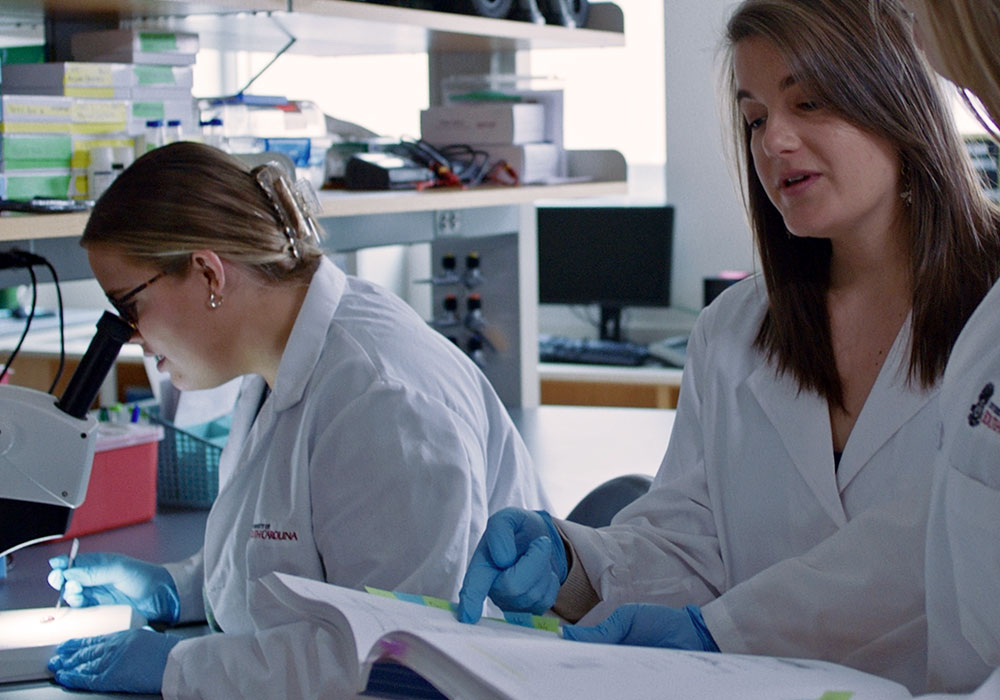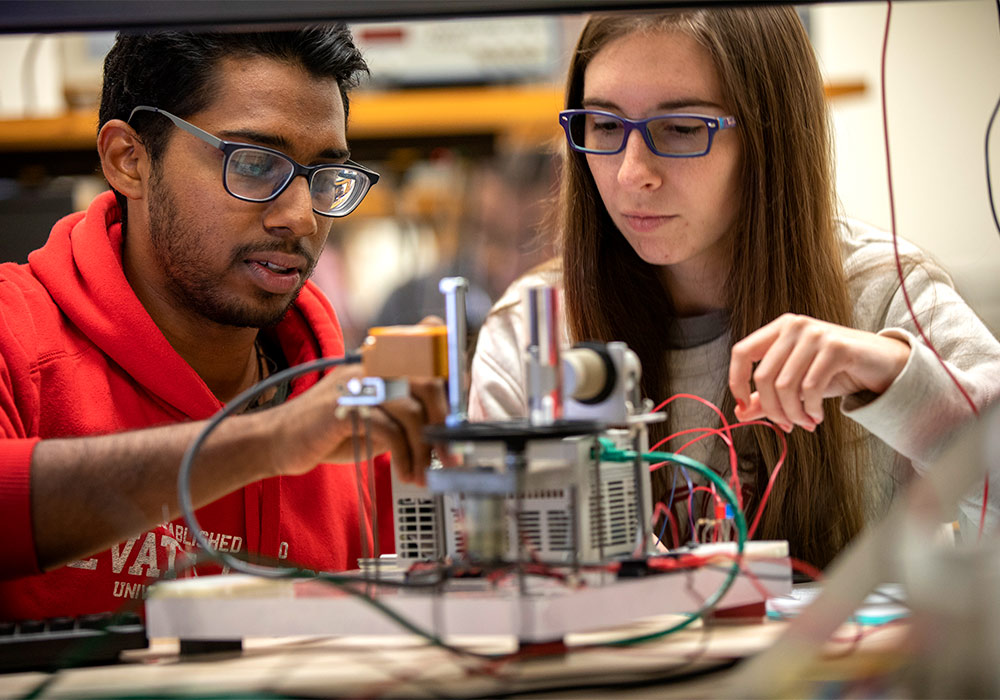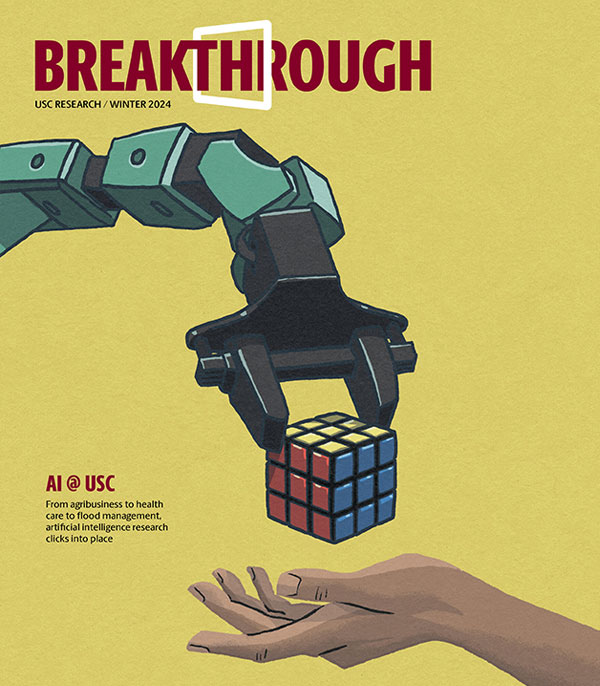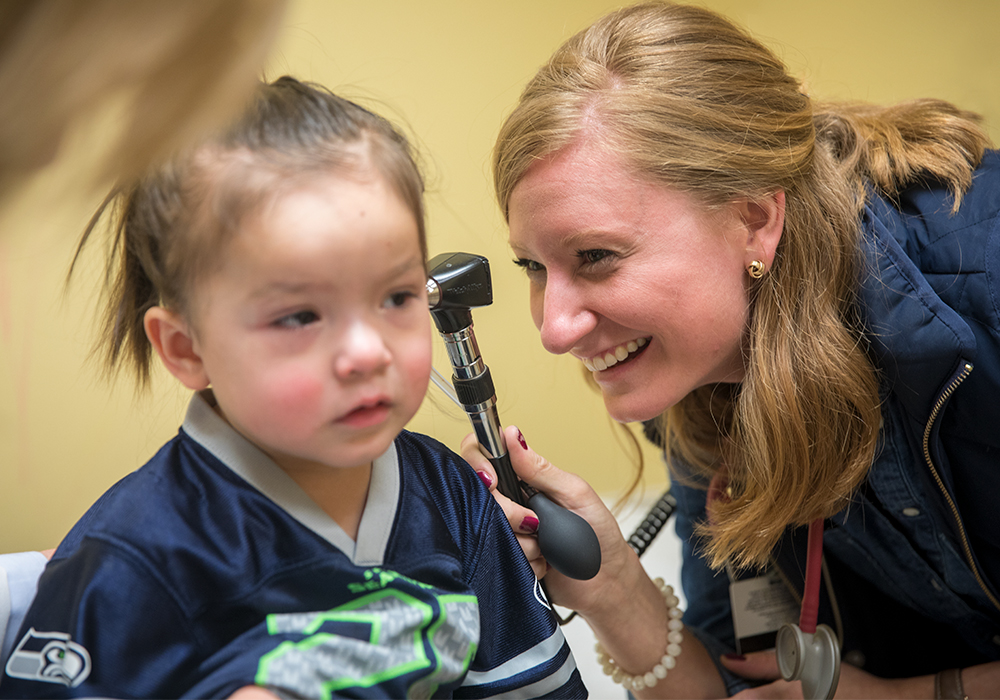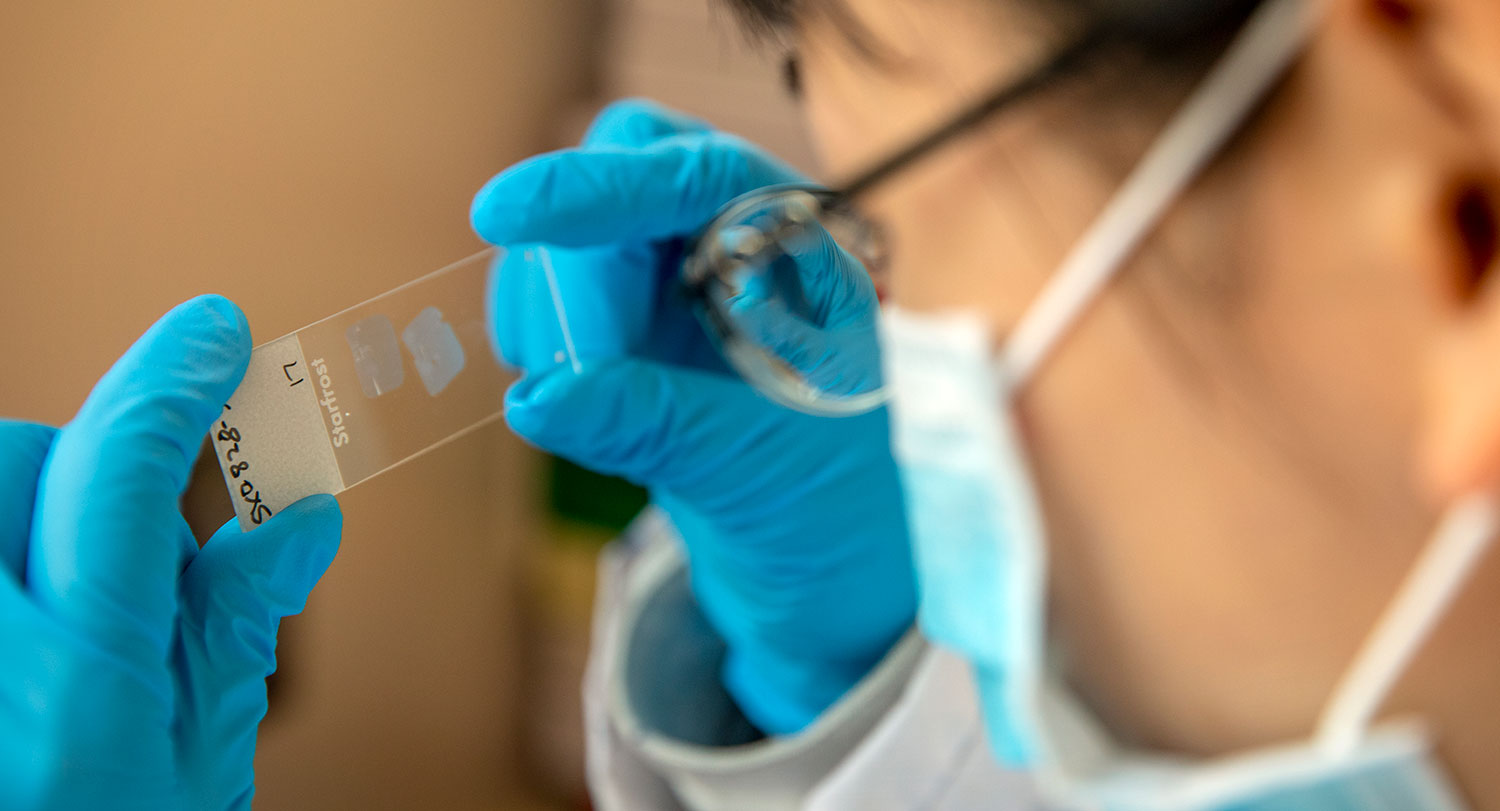
Research at South Carolina
Research is a learning tool of the highest order at the University of South Carolina. Discovery allows us to illuminate history, contextualize the present, and help plan for what’s to come.
Scientific research, scholarship and creative activity abound throughout USC. That focused presence within nearly all colleges, departments and campuses of the state’s flagship university is one reason Carnegie Foundation has designated South Carolina as an institution of very high research activity.
-
Future focused.
USC is home to interdisciplinary expert research teams that are exploring solutions to five scientific and societal challenges facing South Carolina. Their discoveries can have wider implications — benefitting any state grappling with these significant scientific and societal challenges.
Research Institutes -

-

-

-

-

Research Spotlights
-

Mentoring program empowers families of children with Autism Spectrum Disorder
Preliminary results from a five-year NIH-funded study at the University of South Carolina show that the Autism Parent Navigator Program improves mental health, parenting confidence and caregiver relationships for families with children diagnosed with autism. Led by social work professor Robert Hock, the program connects parents with experienced peer navigators to offer guidance, emotional support and skill-building.
-

Innovative tech aims to help older adults age in place
University of South Carolina researcher Shaun Owens is using remote monitoring technology to support African American seniors with dementia in rural areas—helping them age in place and bridging the healthcare gap.
-

Biomedical engineering faculty member studying the biomechanics of brain injury
Sudden violent impact to the head, the kind that can happen in car crashes, football games and other activities, can shear and stretch brain tissue in ways that are very difficult to see. That’s why USC biomedical engineering assistant professor Ahmed Alshareef is part of a team studying the biomechanics of brain injuries with a goal of understanding exactly what happens dynamically to the brain during concussive events.
-

USC students excel at interprofessional health event
It’s only been three years since the University of South Carolina began competing in a national competition for students entering health professions — yet it has already placed among the top three competitors twice.
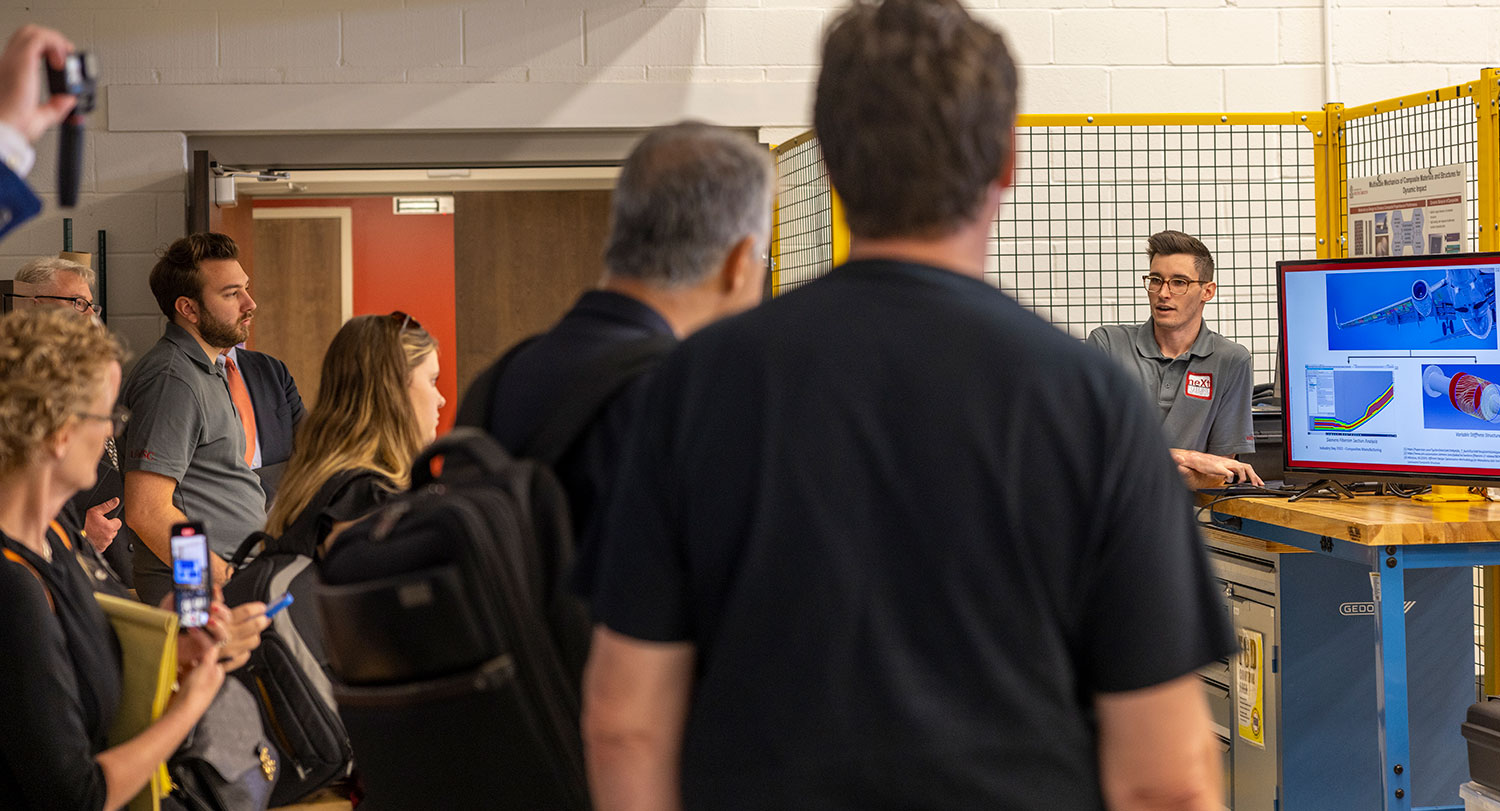
Let's build a better world.
The resources of the University of South Carolina are poised to address local and global challenges. We work with public and private collaborators to provide our researchers with the resources and infrastructure they need to make a difference.
Partnership Opportunities